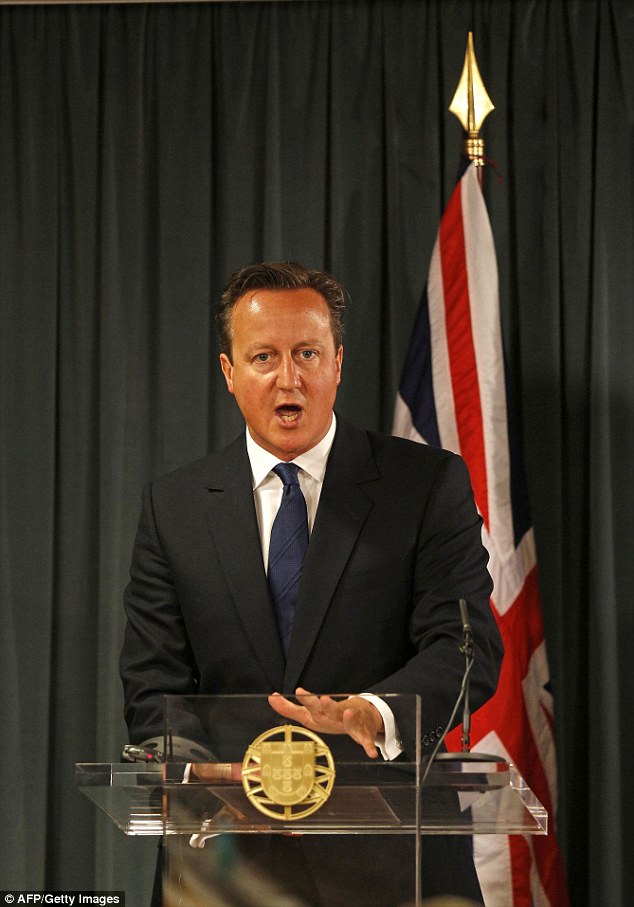Revealed: How the five wealthiest Gulf Nations have so far refused to take a single Syrian refugee
- WARNING: GRAPHIC CONTENT
- Four million Syrians have fled, most live in Middle Eastern refugee camps
- More than 30,000 have risked their lives to reach European shores in 2015
- Saudi Arabia, UAE, Qatar, Kuwait, Bahrain have resettled 'zero' refugees
- Amnesty International described their inaction in the crisis as 'shameful'
More than four million Syrians have been forced to escape the never-ending civil war ravaging their country and the barbaric terror group carving a bloody trail across the Middle East.
The vast majority live in overcrowded refugee camps in Turkey, Lebanon, Jordan, Egypt and Iraq - all under threat from ISIS - and record numbers are making the perilously long journey to Europe.
Yet, as debate rages between politicians in Europe over how many they should take, nearby super-wealthy Gulf nations of Saudi Arabia, United Arab Emirates (UAE), Qatar, Kuwait and Bahrain have refused to offer sanctuary to a single Syrian refugee.
Amnesty International's Head of Refugee and Migrants' Rights, Sherif Elsayid-Ali, described their inaction as 'shameful'.
He said: 'The records of Gulf countries is absolutely appalling, in terms of actually showing compassion and sharing the responsibility of this crisis... It is a disgrace.'
Scroll down for video

Exodus: Wealthy gulf nations Saudi Arabia, United Arab Emirates, Qatar, Kuwait and Bahrain have not offered to house a single one of four million Syrian refugees (pictured) to have fled the war-torn country

Fury: A political cartoon pointed fingers at the Gulf nations for their inaction, with a caption which read: 'Refugees welcomed by: Saudi: 0, Kuwait: 0, Qatar: 0, Emirates: 0, Bahrain: 0'

New homes: Most of the Syrian refugees who travel to Europe via countries like Libya and Turkey are looking to reach Germany
Left with nothing, these refugees travel thousands of miles from the Middle East, through central Europe and across the Mediterranean to reach countries like Germany and Austria.
Others have tried to sneak on boats, trains and trucks crossing the Channel to the UK.
Almost 3,000 have died trying to reach Europe by sea this year, but hundreds more attempt the same life-threatening journey with their babies and young children every single night.
The tragic death of three-year-old Aylan Kurdi who drowned trying to reach the Greek island of Kos from Bodrum, Turkey, inspired a seismic shift in the European attitude towards the 313,000 people who have reached the continent this year.
None have been allowed to enter the (relatively) nearby Gulf nations, who all rank in the world's top 50 GDPs and have a combined military budget of more than £65billion, according to Arab expert Sultan Sooud al-Qassemi.
He said: 'The Gulf must realise that now is the time to change their policy regarding accepting refugees from the Syria crisis. It is the moral, ethical and responsible step to take.'

Bloody: Most Syrians are fleeing the perils of their home country where rebel-held towns like Ain Tarma (pictured) are shelled by the government and ISIS control vast parts of the nation

Long way round: Most refugees travel thousands of miles from the Middle East, through central Europe and across the Mediterranean to reach countries like Germany and Austria - not to relatively nearby Gulf nations

Catalyst: The tragic death of three-year-old Aylan Kurdi who drowned trying to reach the Greek island of Kos from Bodrum, Turkey, brought home the plight of tens of thousands of refugees
None of the Gulf countries signed the 1951 Refugee Convention which defines a refugee 'outside the country of his nationality' because of 'fear of being persecuted for reasons of race, religion, nationality'.
Syrians can still apply for 'costly' tourist visas and work permits to enter wealthier Gulf nations but they are rarely granted, according to the BBC.
Gulf nations argue that accepting large numbers of Syrian refugees is a serious threat to the safety of its citizens because terrorists could hide themselves among civilians.
They have donated large sums of money to help homeless refugees. According to ReliefWeb, the UAE has funded an entire refugee camp in Jordan which shelters tens of thousands of Syrians.
Meanwhile, Saudi Arabia and Qatar have donated funds, food, shelter and clothing to Syrias in Lebanon, Turkey and Jordan.
In total, the Gulf states are thought to have given over £589m to the aid effort - but it is four times less than the United States has.
The UK has given £918million to help deal with the impact of violence in Syria and Prime Minister David Cameron today announced Britain is increasing its aid for refugees to more than £1billion.
Britain's contribution is more than Saudi Arabia's £387million , UAE's £359million and Qatar's £157,000 combined.
The Gulf region 'has the capacity to quickly build housing for the refugees,' according to the Managing Editor of the Quartz news website, Bobby Ghosh.

Only the United States has given more to the humanitarian effort in Syria since 2011 than the UK, according to the Financial Tracking Service

Action: British Prime Minister David Cameron promised the UK would take in 'thousands' of Syrian refugees

Mass migration: Most migrants and refugees - including those in Syria - are fleeing war and persecution in their home countries and heading to Europe
He wrote: 'The giant construction companies that have built the gleaming towers of Dubai, Abu Dhabi, and Riyadh should be contracted to create shelters for the influx.
'Saudi Arabia has plenty of expertise at managing large numbers of arrivals... There's no reason all this knowhow can't be put to humanitarian use.'
The majority of Syrian refugees have been taken in by Middle Eastern countries. Around 1.9million live in Turkish refugee camps, 1.1million in Lebanon, 629,000 in Jordan, 249,000 in northern Iraq and Egypt has housed 132,000, according to the United Nations.
But there was a massive surge in those trying to reach Europe this year and asylum applications had topped 300,000 by early August.
More than 89,000 were from Germany, which expects to take in more than 800,000 refugees from all over the world this year, and 62,000 for Sweden.
The UK has promised to rehome 'thousands', said Prime Minister David Cameron, who only this week claimed accepting more people was not the simple answer to the crisis.
- Syria crisis: Gulf States should open their doors to Syrian refugees
- The Arab world’s wealthiest nations are doing next to nothing for Syria’s refugees - The Washington Post
- Quartz
- ReliefWeb
- UNHCR - Refugees Magazine Issue 123: 1951 Geneva Convention 50th Anniversary
- Syria Regional Refugee Response - Regional Overview
- Immigration News | Daily Mail Online
- Syria News | Daily Mail Online
-
 The annual West Point pillow fight turns very nasty
The annual West Point pillow fight turns very nasty
-
 Irate customer at kebab shop melts down over order
Irate customer at kebab shop melts down over order
-
 Spain rally crash: Car flies off track and kills six people
Spain rally crash: Car flies off track and kills six people
-
 Nick Kyrgios and Eugenie Bouchard on-court chemistry
Nick Kyrgios and Eugenie Bouchard on-court chemistry
-
 Tyler Perry's touching tribute video for Bobbi Kristina
Tyler Perry's touching tribute video for Bobbi Kristina
-
 The moment Trump security guard hits protester in face
The moment Trump security guard hits protester in face
-
 Harry Styles corrects grammar on a fan's sign from the stage
Harry Styles corrects grammar on a fan's sign from the stage
-
 'Survivors of Dad Jokes': Nickelodeon share hilarious video
'Survivors of Dad Jokes': Nickelodeon share hilarious video
-
 Good Samaritan stops erratic driver with child in car
Good Samaritan stops erratic driver with child in car
-
 University of Michigan student lives small in a Tiny House
University of Michigan student lives small in a Tiny House
-
 Boy found suckling on pregnant dog in Chile taken into care
Boy found suckling on pregnant dog in Chile taken into care
-
 No place like home: Al Roker (and son) on Today Show
No place like home: Al Roker (and son) on Today Show
-
 Hillary fumes at Trump for attacking her closest aide Huma...
Hillary fumes at Trump for attacking her closest aide Huma...
-
 Broken bones, dislocated shoulders and cadets taken away in...
Broken bones, dislocated shoulders and cadets taken away in...
-
 Firenado! 800,000 gallons of Jim Beam accidentally released...
Firenado! 800,000 gallons of Jim Beam accidentally released...
-
 Hired for $500 to help kill an innocent woman: 23-year-old...
Hired for $500 to help kill an innocent woman: 23-year-old...
-
 Court dismisses white lesbian mother's lawsuit after she was...
Court dismisses white lesbian mother's lawsuit after she was...
-
 Is El Chapo hiding in Costa Rica? Net closes on the world's...
Is El Chapo hiding in Costa Rica? Net closes on the world's...
-
 Louisiana teen football star dies breaking his neck in punt...
Louisiana teen football star dies breaking his neck in punt...
-
 Tiger Woods' former mistress to have her brain lifted off...
Tiger Woods' former mistress to have her brain lifted off...
-
 Al Roker's 'Wake Up With Al' Weather Channel show cancelled...
Al Roker's 'Wake Up With Al' Weather Channel show cancelled...
-
 Britain wants to quit Europe: Shock new poll shows EU 'no'...
Britain wants to quit Europe: Shock new poll shows EU 'no'...
-
 Michigan student fed-up with $800-a-month rent on campus...
Michigan student fed-up with $800-a-month rent on campus...
-
 Horror at Spanish rally race as car veers off track and...
Horror at Spanish rally race as car veers off track and...




















































































































































































































































